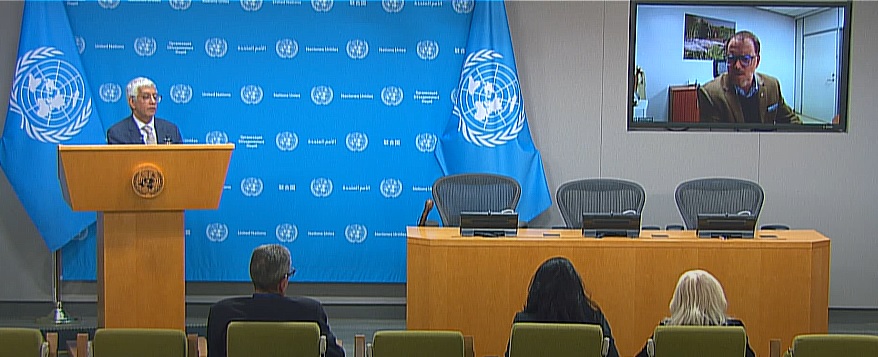
United Nations: Lack of Funding and Humanitarian Access Will Cost Thousands of Sudanese Lives
moatinoon
The United Nations has warned that tens of thousands of Sudanese people could die in the third year of the war if humanitarian agencies do not receive the funding and access needed to reach those in need.
Shaun Hughes, Emergency Coordinator for the World Food Programme (WFP) for the Sudan crisis, said in a press briefing Thursday at the UN Headquarters in New York — speaking via video from Nairobi, Kenya:
“Tens of thousands of people in Sudan will die during the third year of war unless the World Food Programme and other humanitarian agencies are able to access and secure the resources needed to reach those in need.”
He reminded the press that four out of every five displaced people in Sudan are women and children, amid a total number of 12 million displaced and refugee individuals.
Hughes also noted that Sudan is currently the only country in the world with a confirmed famine — the third famine to be classified globally this century.
According to the UN Office for the Coordination of Humanitarian Affairs (OCHA) in Sudan, funding shortages have already forced the closure of 70% of community kitchens, which had become lifelines for millions across the country. That’s 980 out of 1,400 kitchens, including many located in areas facing acute hunger.
Since the outbreak of war two years ago, local volunteers had established what became known as Emergency Response Rooms, providing food and medical care to people trapped in conflict zones.
OCHA has called on the international community to prevent further shutdowns, noting:
“These local groups are providing food, basic health care, and financial support in many areas. Without them, hundreds of thousands of people face escalating risk of severe hunger.”
The UN estimates that maintaining these kitchens and other critical frontline community services requires 12 million per month.
Shaun Hughes emphasized that WFP’s goal is to scale up aid to reach 7 million people by mid-year, especially in areas already facing famine or at high risk.
He also warned that the rainy season approaching in June would make many roads impassable, stating:
“We are in a race against time to pre-position aid closer to the populations in need.”
However, he stressed the urgency of funding, saying:
“Without funding, we are faced with a terrible choice — either reduce the number of people receiving aid or reduce the amount of aid each person receives.”

